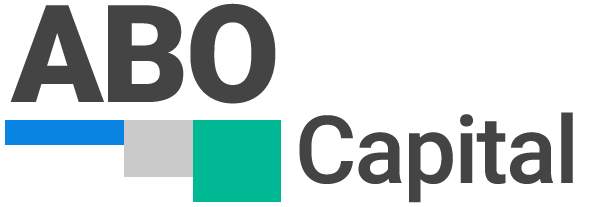Understanding Your Non-qm Loan Options
How to get a Mortgage as a Small Business Owner
You’ve already taken on the (big) accomplishment of owning your own business – owning a home is likely next in your plan. While you may not qualify for the most common conventional and FHA loan types, there are many loan programs designed just for folks like you.
Can A Small Business Owner Get A Mortgage?
The short answer: Yes! Mortgage programs have evolved to allow for more than just the standard salary or W2 income. Many lenders now offer more flexible income qualifications that allow for small business owners, self-employed people, or anyone with proven income on their bank statements.
The loan process will be very similar to the more traditional convetional, jumbo, or FHA loan process. The key difference will be in verifying your income.
Because many small businesses make money in sporadic amounts and unpredictable frequencies, lenders want to review your bank statements or business financials to verify the income you’ll need to pay back a loan.
While the process may differ slightly, that doesn’t mean that small business owners don’t have an opportunity to own a home. Because the loan strays from the cookie-cutter loan types favored by big banks, your best bet to finding a loan program that works for you is working with a mortgage broker that can shop your qualifications across lenders to find the right fit for you.
Qualifications for Small Business Owners
Like we outlined above, the loan process will look very similar for small business owners as it does for W2 employees. There are several key components that lenders look at to verify your viability for a loan. Here’s a breakdown of those elements:
Credit History
Your credit history is a record of how you’ve managed debt in the past, including credit cards, loans, and bill payments. It’s summarized by a credit score, a three-digit number lenders use to assess your risk as a borrower. A strong credit history with a high score shows responsible financial behavior and increases your chances of qualifying for a mortgage with favorable terms like a lower interest rate.
Down Payment
A down payment is a lump sum of cash you pay upfront when buying a home. It signifies a skin-in-the-game approach and reduces the overall loan amount you need to borrow from the lender. This lowers the purchase price the loan covers (home price minus down payment), making the loan less risky for the lender. A larger down payment can improve your chances of qualifying for a mortgage, potentially leading to better loan terms and a lower monthly payment.
Debt To Income Ratio
Your debt-to-income ratio (DTI) compares your monthly debt payments to your gross monthly income. Lenders calculate it by dividing your total monthly debt payments (including housing payments, car loans, credit card minimums, etc.) by your gross monthly income. A lower DTI indicates you have more income available to cover your debts, which improves your chances of qualifying for a loan and potentially securing better terms.
As a small business owner, you have flexibility in how you’ll prove your income. You could use your own personal bank accounts to qualify for a loan. You could also use the business documentation that shows the viability of your business as qualifying income for the loan. You can even use the assets you possess as owner of a business to qualify using an asset depletion loan.
If you use any of the above programs, you might need to provide the following documents to your lender to qualify:
Personal Bank Statements
While non-QM (non-qualified mortgage) programs and those designed for small business owners can offer more flexibility for income verification, they may still require some level of personal financial disclosure. In addition to business bank statements showing income deposits, a small business owner might need to provide personal bank statements for 24 months to demonstrate how business income is used to cover personal expenses. This helps underwriters assess how intertwined the business and personal finances are. For non-QM programs especially, lenders may look for additional documentation like personal tax returns or investment statements to get a more holistic view of the borrower’s financial health.
Profit and Loss Statements
Securing a mortgage often requires small business owners to submit profit and loss (P&L) statements for the past 2-3 years. These statements detail your business’s income and expenses over a period. Mortgage lenders meticulously review P&L statements to assess your business’s financial health. They focus on consistent profitability, ensuring your income stream is reliable enough to support mortgage payments. Additionally, they may analyze operating expenses to understand your financial obligations and ensure sufficient income remains after covering business costs.
Business Ownership Documents and Tax Returns
When applying for a mortgage, a small business owner should be prepared to submit business licenses, registration documents, and potentially formation documents, depending on the business structure. These documents verify your ownership stake and legitimacy of the business. Tax returns, both personal and business (including K-1s for partnerships or S corporations), are crucial for income verification. Lenders will analyze these documents to assess your income stability, tax burden, and overall financial health of the business, all of which significantly impact your loan approval and potential interest rates.
Preparing Your Business for a Mortgage
As a small business owner, you’re likely not a stranger to long term strategy and planning. Making plans to find your best loan option will require the same forethought and strategic analysis. We always recommend using a mortgage broker when tackling long-term financial goals like a mortgage.
Understand Your Budget
Knowing what you’re comfortable spending on a mortgage every month will shape your mortgage process and home shopping journey. Several months before you’re ready to actually buy a home, you should review your own financials to see what you can comfortably commit to every month for a mortgage payment.
There are basic calculations that a mortgage broker can do with your monthly income and debt to help you define the exact number. You’ll need to factor in the property taxes, HOA, insurance, and other extra fees beyond the principal and interest of your mortgage.
Make Sure Your Documentation Is Accurate
If you plan to use your persona bank statements or business documents to qualify for a loan, we recommend taking a hard look at your recent months to ensure your financial documentation is up to parr and can be easily processed by a mortgage team.
This is another instance where working with a mortgage broker with over 30 years experience in qualifying small business owners for mortgages can help you plan the strategic move into your loan.
Pay Down Debts
A large component of qualifying you for a loan will be your debt to income ratio. This is a calculation all lenders use to determine how much money comes in versus how much money leaves your household every month. While paying down major debts may not be possible, paying small debts down to lower payments or removing them entirely can help with your DTI calculation and give you more options for qualification.
How to Apply For A Mortgage As A Small Business Owner
Find a Mortgage Broker
Most small business owners using non-QM loans turn to brokers to find their best loan program. This is because brokers have access to dozens of lender catalogs, meaning you have more flexible loan programs to choose from and you’ll likely get a better deal on rate and fees.
Gather Documents
Depending on the type of loan program you and your broker decide on, you’ll need to gather a variety of documents to put together a full application. Work with your broker to define exactly which documents you’ll need.
Get A Pre-Approval Letter
Your lender will provide you with a pre-approval letter. This document states that you have the ability to pay for a home at a certain amount and will drastically help your bidding process for your dream home.
Purchase Your Home
Once your offer is accepted on a property, the lender will manage the loan process as it gets finalized through underwriting and closing. PRetty soon, you’ll find yourself at a closing table with a brand new set of keys in your hand!
We’ve qualified thousands of small business owners for loans
Reach out below to talk to our team of experts about leveraging your bank statements or nontraditional income to qualify for a home loan.
Learn More About Mortgages
No Doc Mortgage Loans for Self-Employed Borrowers
Bank statement home loans offer relaxed guidelines versus traditional mortgage loans. If you need to acquire funds in a hurry, you might qualify for an asset-based home loan. Abo Capital helps qualified self-employed borrowers obtain no doc mortgage loans. What...
Private Money Lenders in Los Angeles, California
Private money lenders offer financing that’s typically unavailable through traditional banks and mortgage companies. Whether you need a bridge loan or to borrow money from an income producing property, a private money lender is a great resource. You can find...
Mortgage Loans for Self-Employed Home Buyers
Self-employed home buyers can achieve the American Dream of Homeownership. Whether you operate as a limited liability company, a sole proprietor or as an independent contractor, you might qualify for a home loan. Reputable lenders offer affordable...


